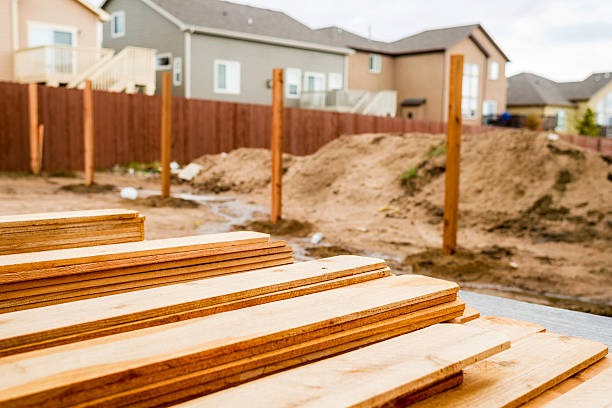
What Should You Look for in a Low Slope Roofing Contractor?
When it comes to maintaining or installing a low slope roof, the choice of contractor can make a significant difference. Hiring someone experienced and qualified ensures your investment is protected and your property stays safe and sound. But with so many options out there, how do you choose the right one? We’re here to guide you through the process.
Qualifications Matter
Experience Specific to Low Slope Roofing
When looking for a contractor, experience is crucial. It’s vital to find someone who specializes in low slope roofs rather than just general roofing. Experienced contractors will understand the nuances specific to low slope roofs, including the type of materials and installation techniques best suited for them. Their familiarity with potential challenges ensures effective solutions that can save time and money.
Furthermore, understanding Denver low slope roof installation techniques is essential for ensuring durability and performance. This expertise allows contractors to apply the most efficient methods tailored to your roofing needs.
Licensing and Certification
Ensure that the contractor has the necessary licenses and certifications to operate in your area. This not only provides assurance of their skillset but also ensures that they comply with local regulations. A licensed contractor is more likely to follow industry standards and provide quality work. Certification from manufacturers might also offer insights into their expertise with specific materials.
Quality of Materials Used
Material Options
Different materials are available for low slope roofing, including rubber membranes, PVC, and TPO. Each material has its unique benefits and characteristics, making it essential to choose one that aligns with your building’s specific needs. Speak with your contractor about the options to ensure they’re using high-quality materials. This choice not only affects the roof’s durability but also its long-term maintenance requirements.
Manufacturer’s Warranty
A reliable contractor should offer materials that come with a manufacturer’s warranty. This warranty serves as a guarantee of the product’s quality and longevity, offering reassurance that the materials are built to last. For instance, if you’re considering roof repair in Denver, CO, having materials backed by a strong manufacturer’s warranty ensures extra protection and peace of mind for your investment, covering potential defects. Ensure the warranty details are clearly understood and documented in your agreement.
Reputation and Reviews
Check Online Reviews
When choosing a roofing contractor, the internet is a handy tool for gauging their reputation. Explore platforms like Yelp, Google, and the Better Business Bureau to read past customer reviews. These reviews can provide insights into the contractor’s reliability, quality of work, and customer service. However, it’s essential to read multiple reviews to get a balanced view and not rely on a single source.
Ask for References
It’s beneficial to request references directly from the contractor. Talking to their previous clients can give you a firsthand understanding of their workmanship and professionalism. This step can also highlight how they handle challenges and follow up with customers. Moreover, for those specifically seeking assistance with managing large buildings or complexes, these insights can be invaluable. A contractor confident in their services, particularly in commercial property management services Denver, will readily provide reliable references.
Customer Service
Communication is Key
Effective communication is fundamental when working with a roofing contractor. They should promptly address your questions and concerns, keeping you informed throughout the project. A contractor who listens and communicates clearly helps prevent misunderstandings and builds trust. From start to finish, transparency in communication ensures a smoother project experience.
Project Management and Timeliness
Understanding how a contractor manages their projects is crucial. They should have a structured approach to planning and executing tasks on schedule. Timeliness is key, as delays can lead to higher costs and inconvenience. A contractor who efficiently manages time and resources contributes to the project’s success and reduces stress for you.
Financial Considerations
Transparent Pricing
Working with a contractor who offers a clear and detailed quote is essential. Transparency in pricing helps you avoid unexpected expenses and gives you an accurate picture of your budget. Make sure every element of the cost is explained upfront so there are no hidden surprises along the way.
Insurance and Liability
It’s important to ensure that your contractor has the necessary insurance coverage. Proper insurance protects you from liability in case of accidents or damages that might occur during the project. This gives you peace of mind, knowing that both you and the contractor are covered.
Environmental Responsibility
Eco-Friendly Options
If sustainability is important to you, discuss eco-friendly roofing options with your contractor. Green roofing solutions, such as reflective surfaces, can help lower energy costs and promote environmental conservation. These materials often come from recycled sources, reducing the carbon footprint. Choosing eco-friendly options supports a healthier planet while maintaining roof durability.
Recycling Practices
Find out if they recycle materials from old roofs. Some contractors partner with recycling programs to ensure responsible disposal, reducing landfill waste. This practice not only supports sustainability but also aligns with eco-conscious values. Opting for a contractor with strong recycling practices can make a positive environmental impact.
Wrapping Up
Selecting the right low slope roofing contractor requires careful consideration of factors like experience, reputation, and professionalism. It’s essential to prioritize those who demonstrate expertise to ensure your investment is safe. Conduct detailed research, ask for references, and evaluate their communication style. Trust your instincts when making a decision, ensuring it aligns with your specific goals and budget. A wise choice can lead to long-term satisfaction.


